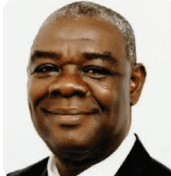By Francis OWUSU-ACHAMPONG( FCIB)
“Democracy must fall because it will try to tailor to everyone… the poor will want the wealth of the rich and democracy will give it to them.’’
“Young people will want to be respected as elderly and democracy will give it to them”
“Women will want to be like men, and democracy will give it to them”
“Thieves and fraudsters will want important government functions and democracy will give it to them”
“And at that time when thieves and fraudsters finally and democratically take authority; because criminals and evil doers want power, there will be worse dictatorship than in the time of any monarchy or oligarchy’’ (Socrates 470-399 BC)
Some have often questioned the relevance of studying Classical Civilization. But when one comes across nuggets of wisdom and foresight as expounded by Socrates in the quote above, one is tempted to ask why Classical Civilization should not be made a compulsory course of study by all undergraduates in every university everywhere!
Various shades and patterns of democracy have been practised in various jurisdictions over the centuries. Colonialism, however conspired to alter the peculiar, yet effective system of democracy that existed among cephalous societies in many parts of the tribal states before the Gold Coast was established.
Lord Luggard experimented with the infusion of aspects of our local governance in his administration during the colonial days in West Africa.
Ever since, Ghanaian and other societies have also adopted different kinds of democratic tenets, culminating in the 4th Republican constitution which Ghana has experimented at grave cost and palpable inconsistencies since 1992.
The extreme partisanship that has shaken this country’s unity and cohesion is rooted in this.
To this writer, one of the greatest disservice the 4th republican constitution has heaped on this country is the implicit concept of “the winner takes all “. That has been the root of all the acrimony and extreme partisanship that has bedevilled our current political dispensation, spiralling into dangerous tribal bigotry among others.
The president has been so empowered that he has become a modern- day despot to whom all must sing praises to eat from his table; armed with authority to appoint and disappoint so many critical leaders in various positions of the governance architecture.
Even the Council of State has been weakened as the president is technically enamoured to ignore their advice.
Even worse has been the need to appoint a specific number of ministers from parliament, irrespective of the endowment or otherwise of adequate competencies from the parliamentary chamber. Another “obnoxious’’ part of the constitution is the absence of a cap on the number of supreme court judges.
Ghana’s current constitution simply opens opportunities for a president to appoint as many judges as he desires to the apex court. Some opine that this could ostensibly yield to his whims and caprices in the adjudication of cases, be they political or criminal.
This has exacerbated the perception of bias and the tendency to undermine the confidence of the people in the judicial system. Straight forward criminality is now seen through party political lenses, with media trials by both ace jurists and pedestrian lawyers.
The multiple layers of institutions create a huge burden on the national purse, even though most of these institutions merely exist on paper or have conflicting powers with other governance bodies.
The recent discussion on the performance of the Office of the Special Prosecutor since its establishment eight years ago is a vivid example of the disillusionment of the populace about some of these democratic structures.
The CHRAJ and the National Commission on Civic Education have been theoretically useful but conspicuously ineffective to many an observer.
These weaknesses have over the last 33 years, deepened Ghana’s political cracks to make one wonder whether the constitution, in its present state, has done more harm than good.
This view is particularly strong among those who have a distaste for military rule and expect democracy to have assuaged their fears and hostility towards undemocratic governance.
Interestingly, the same powers vested in the president make him/her so powerful over all other spheres of the governance system that incumbent presidents have consistently demonstrated a lukewarm resolve to change the constitution, fearing the loss of such varnished despotic power.
The attempts at forming committees to examine aspects of the constitution are seen by many as mere delay tactics, bereft of any sincerity to effect the desired changes.
Presidential high handedness has been observed throughout Ghana’s 33 years of the 4th Republic. Even before that, Dr. Nkrumah is reported to have used ‘’legitimate” presidential powers to suppress freedoms and found little rooms in the prison service for his political opponents, with some opponents dying in the process.
A friend in the United States laments that democracy under siege is not a phenomenon peculiar to Ghana but now rife even in the US which has practised this system of governance over some 300 years.
President Trump is reported to have ignored a court order reinstating employees in USAID that he sacked some weeks ago! How about the unprecedented attempt at a coup in Capitol Hill following his defeat at the polls?
To quote my friend (whose identity must necessarily be shrouded), “The American governance system has never been really tested before. This time around, it is being stretched to its limits. There are several instances of executive overreach”.
This includes subtle attempts at coercing even intellectual establishments in the US from criticising the President through withdrawal of research grants from the public purse.
Tens of thousands of researchers are reported to be worried about how to continue with their research.
Expectedly, many researchers are hunkering down on criticism of the President, to stave off the withdrawal of critical funding.
If this trend continues, who will hold the president accountable? A culture of silence is subtly brewing in the US touted as the bastion of free speech.
More questions than answers in Ghana where political roguery appears to be sanctioned or at best, the rule of law has come under severe strain of late.
Burkina Faso sneezes and Ghana catches influenza?
While we debate the advantages and disadvantages of democracy over military rule, up north on Ghana’s border, comes a military ruler who appears to be making waves and endearing himself to the people in and outside Burkina Faso.
Visible traits of genuine, selfless leadership can be seen through how he has conducted himself so far as a military head of state, without all the complicated political structures imposed by democratic rule. Perhaps a return to their proverbial land of the incorruptible cliche is imminent.
Naturally, France and her cohorts will not find anything good about President Traore given his resolve to undo the harm that France has meted to the country and other former French colonies in Africa. That will require a different write- up some day.
This writer wants to confine this piece to the strides President Traore has made on the agricultural front, among others.
He has reportedly imported various agricultural machinery to boost the country’s agricultural exploits. Another key innovation introduced is the use of prisoners in the country’s agricultural pursuits.
It is reported that less dangerous prisoners are made to serve on state farms under a condition of reducing their respective jail terms, given the time they spent on the agricultural front and subject to good conduct. The reported enthusiasm to this measure has been overwhelming and exemplary.
President Traore’s decree to stop the export of vegetables, especially onions and tomatoes to Ghana shook Ghana like a tsunami.
He needed to ensure that local production will be enough to feed new tomato paste manufacturing plants that have been recently established to boost an import substitution and integration strategy.
Quickly, President Mahama had to visit and diplomatically negotiate for a reversal of the decree as it could have serious consequences for Ghana where price indices in the food basket weigh heavily on inflation computation.
How else can a country be so humiliated agriculture-wise by a Sahelian country with desert- like soils and inclement weather conditions?
Yesterday, it was the Russian /Ukraine war that nearly tore our economic prospects apart. Today, it is a Sahelian country dibbling us over common onions, cattle and tomatoes and we have to rush to beg!
Meanwhile, the rains have started in many parts of the country but very little is heard of a determined national effort to revolutionize agriculture as a meaningful attempt at managing food inflation. The youth are clamouring for white collar jobs. Many of them are unqualified but still see that as an entitlement for voting a government into power.
Someone promised to make Accra the cleanest city in Africa. That turned out to be a mirage. Accra city roads and gutters remain dirty with heaps of silt and garbage even atop the expensively constructed interchanges and ceremonial streets. The country is struggling to feed prisoners and school children amidst the availability of arable lands.
This writer has never relented in his proposal to have the government involve prisoners and national service personnel in the agriculture and sanitation spheres, not the cosmetic, corruption riddled arrangements.
What do we need to devise strategies to correct the disconnect among the Justice Ministry, the Local Government, CSIR and the Interior Ministries in our bid to emulate the real agricultural revolution going on in Burkina Faso?
Or food supply and sanitation contracts are so cast in stone that any modification will require a referendum?
A serious rethink in the agricultural sector beyond sloganeering is urgently needed if we are to be sincere in our resolve to lower inflation.
It has been proven beyond doubt that food inflation accounts for the worsening costs of living and we do not need any prophets to confuse us about the way out of the mess.
Gaming/Betting; a source of employment?
The furore that greeted the introduction of the betting tax was quite intense, given the involvement of the unemployed youth.
Ironically, these youth consider gaming as an income generation activity, probably a reflection of the disillusionment that has entrapped them into games of chance as income sources.
What do we expect from a nation that now boasts of nearly a hundred universities producing graduates who cannot find gainful employment and neither equipped to create their own jobs?
Consequently, many have been so consumed with gambling that it has become an income source, even though statistically, we know that gaming favours the operators of the scheme more than the patrons.
Elsewhere in South Africa and many advanced countries, gaming at the end of a working day or during holidays is seen as a form of relaxation, hobby or entertainment instead of a sustainable income source.
Betting companies of all hue and cry have now been licensed in the country, further worsening our balance of payments through repatriation of funds to their countries of origin, while adding next to nothing to our economic growth.
Politicians being the queer characters we have collectively created them to be, capitalised on public resentment towards the betting tax. The then opposition smartly saw it as a vote catching strategy. Finally, it became a key issue for voters who easily forgot that winnings are incomes to be legitimately taxed, just like gift and capital gains on stock exchange investments.
Whether we can continue to confuse gambling as a sustainable source of income or a ploy to contain the anger of the increasing unemployed youth, is a question to ponder over as part of our penchant for short term solutions.
The writer is a Fellow of the Chartered Institute of Bankers, a former adjunct Lecturer at the National Banking College, a farmer and the author of “Risk Management in Banking” textbook. Email; [email protected] Tel. 0244 324181










